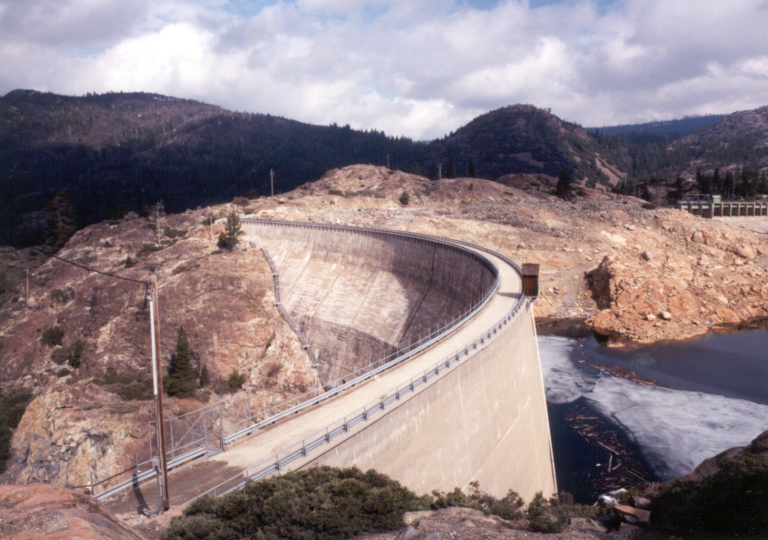Yuba River Waterkeeper Fights for Clean Water Act Protections
By: ajcarapella

By Ashley Overhouse, River Policy Manager at South Yuba River Citizens League
In February, Nevada Irrigation District used a recent federal court ruling to ask the Federal Energy Regulatory Commission (FERC) to waive safe water quality legal requirements for its Yuba-Bear Hydroelectric Project. They are the first water district in the nation to use this case—Hoopa Valley Tribe v. FERC, which removed water quality protections for hydroelectric projects—to try to circumvent the Clean Water Act (CWA) and the California Environmental Quality Act (CEQA).
Dams that are part of hydropower projects are subject to licenses by FERC, which can last 30 to 50 years. Unique and substantial opportunities for river restoration come through the process of relicensing dams that have been negatively impacting free flowing rivers for generations. New licenses are an ideal opportunity to provide enhanced streamflows, more natural flow fluctuations, passage of wood and sediment for habitat, and recreational enhancements for dam-affected river reaches. Waterkeepers are involved in relicensing efforts all over the country, advocating for restored waters negatively impacted for generations by hydropower generation.
Hoopa Valley Tribe v. FERC was a devastating court ruling that has undermined clean water protections essential to the success of relicensing. The D.C. Circuit declared that states waive their right to issue clean water certification under section 401 of the Clean Water Act in certain scenarios. FERC interpreted this ruling broadly, and has started to issue Clean Water Act 401 waivers to water entities in California—exempting a license for a hydropower project from the Clean Water Act for the next 30-50 years.
By waiving the need for a 401 permit, you lose out on years of collaboration and negotiations between federal and state agencies, community stakeholders, and a diverse coalition of conservation groups.
Yuba River Waterkeeper, also known as the South Yuba River Citizens League (SYRCL), is an organization based in Nevada City and the heart of the Yuba River watershed, an important headwaters tributary to the Sacramento River watershed and the Bay Delta. Unfortunately, the Yuba River Watershed is one of the many regions threatened by this recent legal attack on the Clean Water Act.
Nevada Irrigation District (NID) is one of the Yuba River watershed’s local water agencies. By circumventing these crucial water laws, CWA and CEQA, SYRCL Executive Director Melinda Booth says, “NID risks the health of the Yuba River watershed and jeopardizes years of stakeholder collaboration. Their course of action could set a precedent that may undermine environmental protections for waterways nationwide.”
NID’s request for a waiver of a 401 permit risks vital clean water protections for the Yuba River watershed for the next 30 to 50 years, essential to mitigating the negative environmental impacts of hydropower generation.
While there has been no formal response from NID or FERC regarding the request, FERC did issue a 401 waiver for another local water agency in April—citing Hoopa Valley Tribe.
Recognizing the threat, Yuba River Waterkeeper joined other organizations as part of Foothills Water Network and the California Hydropower Reform Coalition to protest this waiver. They requested a rehearing of the waiver along with the California State Water Resources Control Board—that hearing was granted this past Monday, June 17.
If allowed to stand, this recent attack on the Clean Water Act could allow bad actors in the hydropower arena to evade important environmental protections for generations to come. Other licensees such as PG&E and Merced Irrigation District have already joined in, sending 401 waiver requests for their individual relicensing projects.
Help support Yuba River Waterkeeper and Waterkeeper Alliance’s work to defend the Clean Water Act, visit their website to learn more.
Feature image of Spaulding Dam